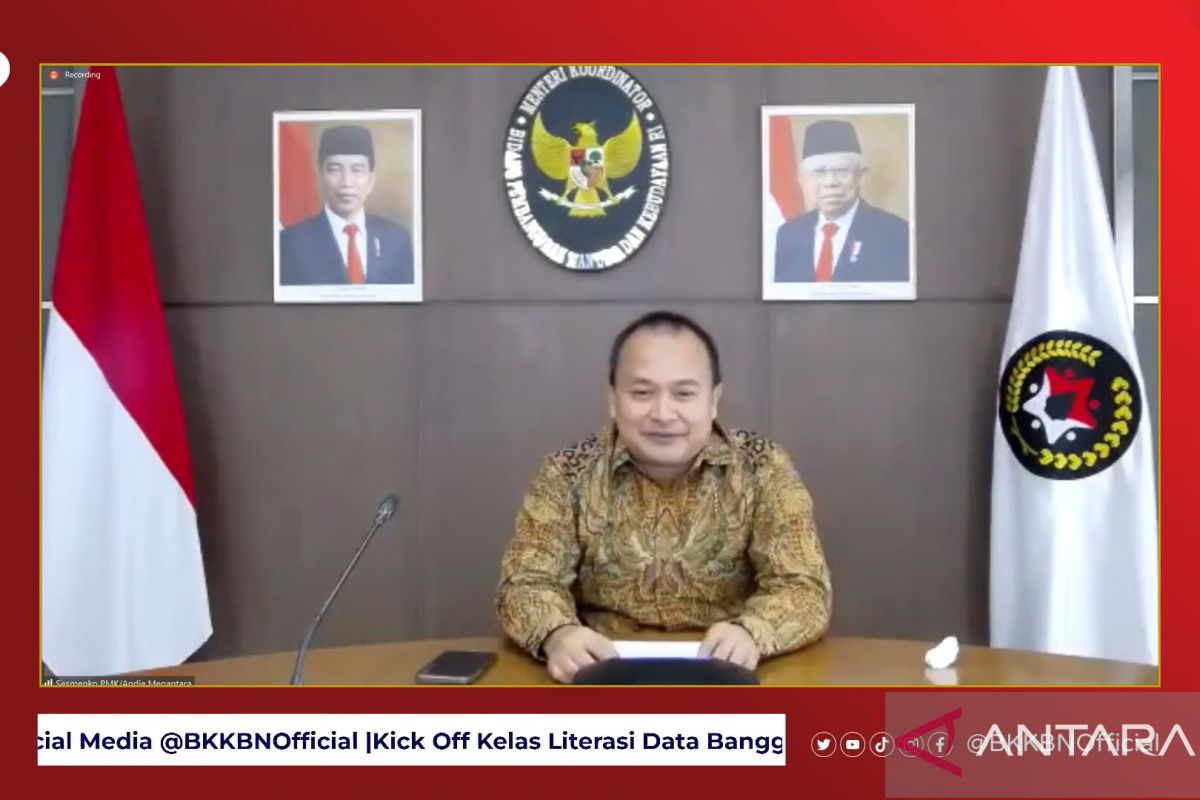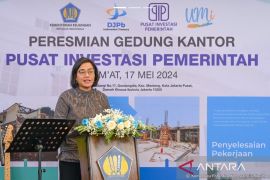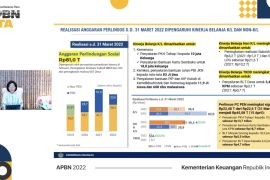The one who controls the data will control the world.Jakarta (ANTARA) - The availability of credible data is essential for determining the locations and targets of policy implementation, such as stunting and extreme poverty alleviation, according to the Coordinating Ministry for Human Development and Culture (Kemenko PMK).
"The one who controls the data will control the world. Thus, it is not enough to have valid data. Mastering and understanding the use of the data is the key to (implementing) appropriate and accurate policies," said Andie Megantara, Kemenko PMK's secretary, remarked on Tuesday.
He made the statement at an online event titled "The Data Literacy Class for Family Development, Population, and Family Planning (Bangga Kencana), Stunting, and Targets for the Acceleration of the Alleviation of Extreme Poverty (P3KE) Programs."
He explained that the government currently uses two types of data to determine the locus of various public policies.
The first is macro data prepared by Statistics Indonesia (BPS), while the second is micro data used to set intervention targets for individuals and families.
The micro data comes from Population Administration Data from Home Affairs Ministry, Integrated Social Welfare Data (DTKS) from Social Affairs Ministry, and Family Data Collection (PK) from National Population and Family Planning Agency (BKKBN).
"Those three data consist of information by name and address, covering almost the entire population of Indonesia, and are regulated by law," Megantara stated.
He also praised the data obtained from BKKBN’s PK, as it covers about 80 percent of the total population and has comprehensive information on demographics, social and spatial information, access to family planning programs, and other population and family development data.
Furthermore, the government uses the P3KE data to properly map which social intervention programs need to be implemented and who the beneficiaries of the programs are, he said.
The Public Works and Public Housing (PUPR) Ministry uses the data for housing and poverty handling programs, the Communications and Informatics Ministry for distributing set top box assistance in the analogue-to-digital switch off program, and local governments for determining the recipients of village cash assistance.
The Education, Culture, Research, and Technology Ministry uses the P3KE data to improve the implementation of the Smart Indonesia Program (PIP) and Smart Indonesia Card (KIP) for higher education programs, Megantara added.
"Therefore, the Data Literacy Class for Bangga Kencana, Stunting, and P3KE Programs is a very strategic activity to increase our capacity as evidence-based policy makers," he remarked.
Related news: Ministry calls on people to adopt nutritionally balanced diet
Related news: PMK Ministry devises draft service standard to improve public services
Translator: Hreeloita Shanti, Uyu Liman
Editor: Anton Santoso
Copyright © ANTARA 2023










